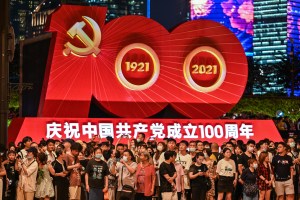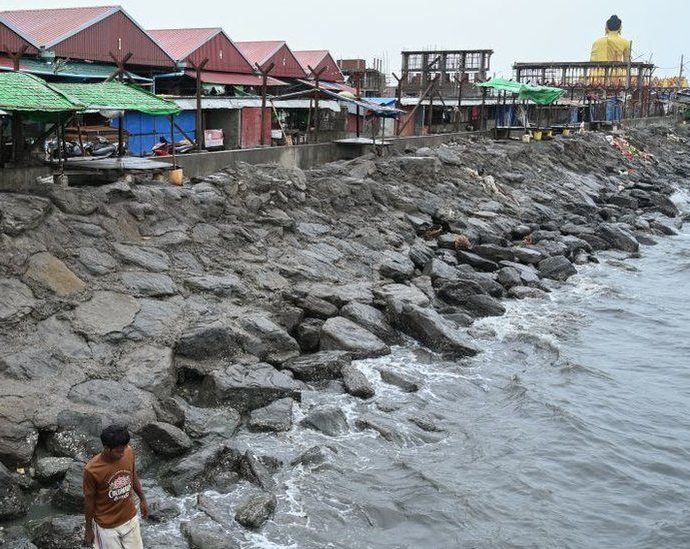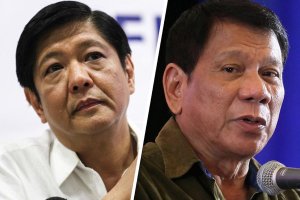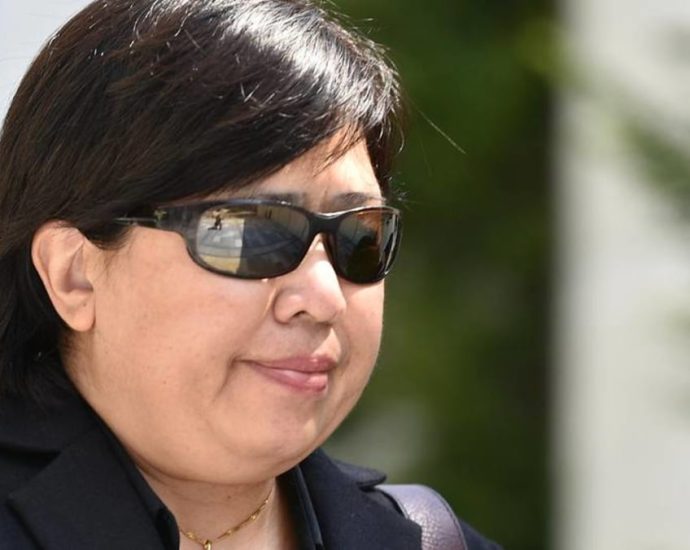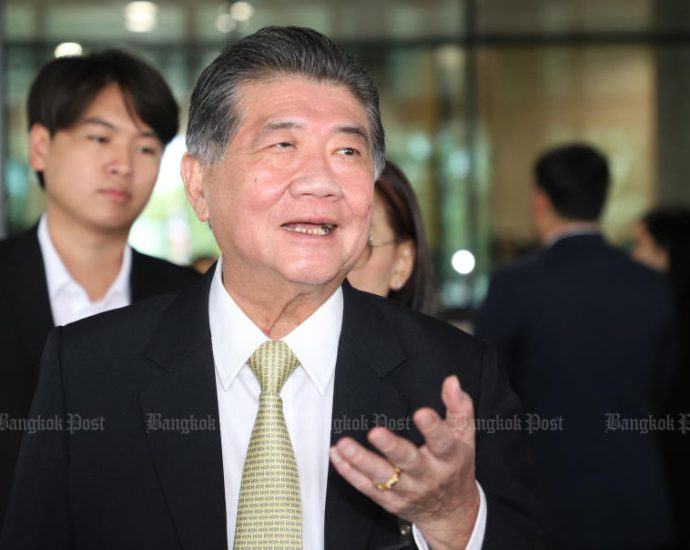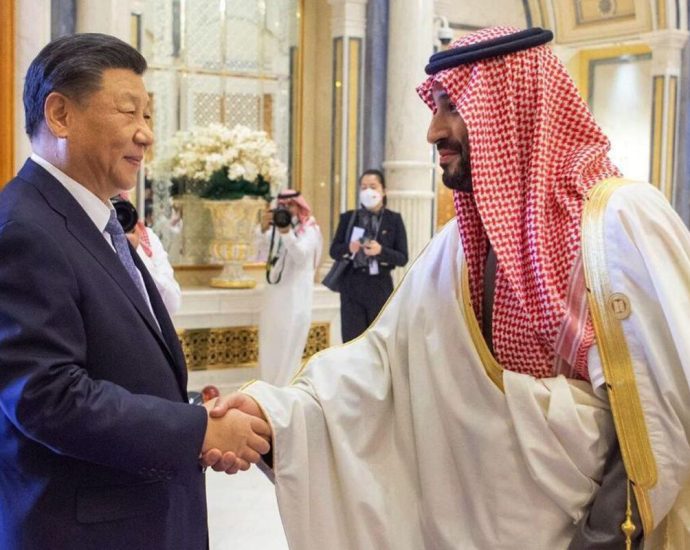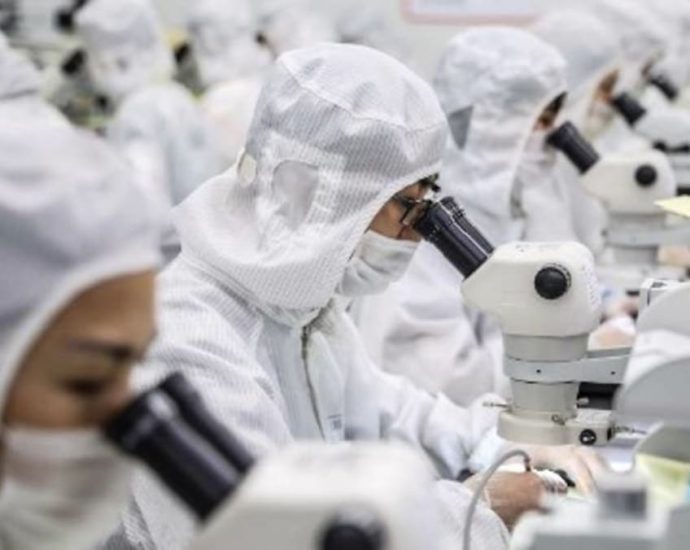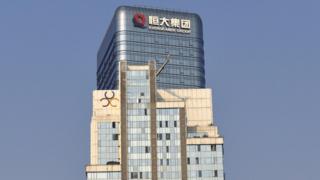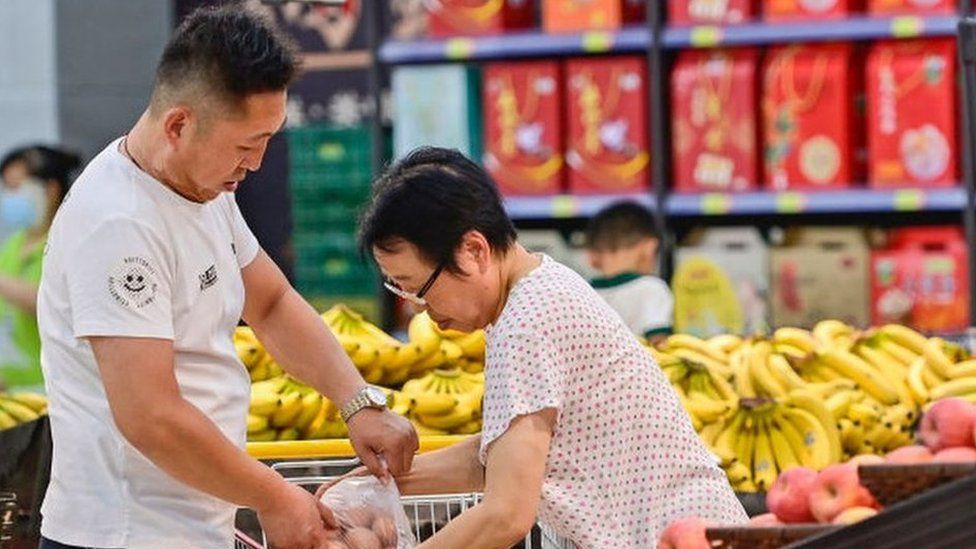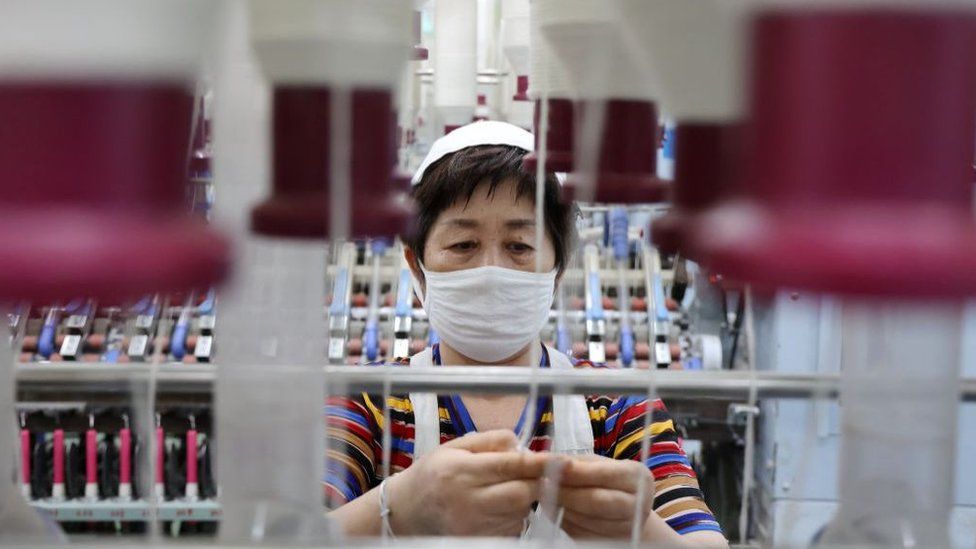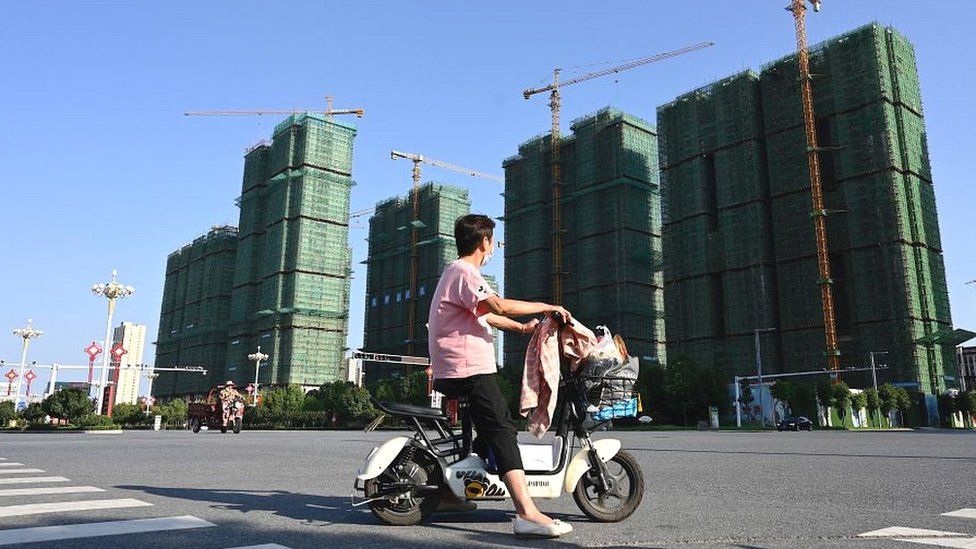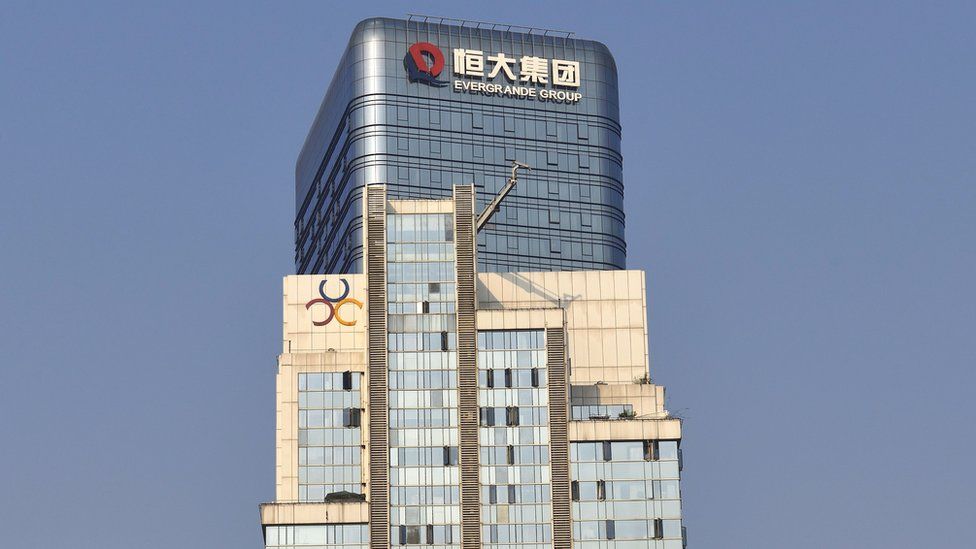Party penetration deepens in Chinaâs private sector
The increased penetration of the private sector by the Chinese Communist Party (CCP) is causing widespread concern.
The establishment of party branches within private companies is perceived as a potential lever of control, alongside financial and regulatory tools, that the government could wield to keep businesses in line. But while the increasing centrality of the CCP in state-owned enterprises (SOEs) is evident, its role in private companies remains less obvious.
Party units in private companies are not a new phenomenon. Since the 1980s, the CCP has stressed its willingness to affirm its presence in the growing private economy, especially in foreign joint ventures.
In 1992, the CCP charter included “companies” in its list of structures where a party organization should be set up if they host three or more party members. The 1993 Company Law required all companies based in China to allow the establishment of units to “carry out the activities of the CCP.”
The CCP’s infiltration of the private sector gained momentum after former president Jiang Zemin’s call in the early 2000s for the CCP to represent “the advanced productive force” and welcome China’s emerging private entrepreneurs.
The private sector is still seen as a frontier for party-building, with Chinese President Xi Jinping making it a priority. In 2012, the CCP’s organization department called for the party to “comprehensively cover” the private sector.
This new wave of party-building efforts includes sending “party-building advisors” to private firms without party branches and creating party-building supervisory bodies.
According to the All-China Federation of Industry and Commerce (ACFIC), the ratio of private businesses hosting a party unit has risen from 27% in 2002 to 48% in 2018, with a bias towards the northern part of the country and the manufacturing sector.
Most of the companies without a party branch do not meet the basic requirement of hosting three party members.

Yet according to the CCP’s own numbers, 73% of private firms had established party units in 2017. The difference in figures might be explained by the existence of various forms of coverage. Joint party branches covering more than one firm are established for the ones that do not have their own embedded CCP unit.
Looking at larger firms, over 92% of China’s top 500 private enterprises host party units. It has been mandatory since 2018 for domestically-listed companies to establish a party entity.
Historically, these party branches are tied to the recruitment and management of party members among employees. In contrast to SOEs, the CCP charter gives a somewhat circumscribed role for party units in private businesses. They are mainly charged with ensuring the company complies with the laws and promoting its “healthy development.”
In most businesses, party branches tend to focus on “business-friendly” activities and do little more than organize study sessions or social gatherings for party members. Yet that may be changing as Xi has called on the private sector to “unite around the party.”
Following a requirement initiated in 2015 for SOEs to enshrine the role of CCP entities in their articles of association, an increasing number of private companies, mostly those with mixed ownership or political connections, have also implemented such amendments.
The CCP’s objective is to “cultivate a team of private economic persons who are resolute in walking with the party” and can be relied upon “in times of crisis.” Entrepreneurs are expected to undergo further education and monitoring to make sure they remain in line with the party’s objectives and “cultivate a healthy lifestyle.”
ACFIC vice-chairman Ye Qing said in 2020 that private firms should not only recognize the leading role of the party in their corporate charters but also dedicate specific funding to the party branches’ activities.
In addition to the dues they collect from members, the CCP units can often rely on funding from the firm, generally around 1% of the total personnel-related expenditures.
The ACFIC also calls for the CCP to “exercise leadership over personnel management,” aiming to avoid “professional managers promoting whomever they like.” It also recommends that firms establish a monitoring structure under CCP leadership to surveil employees, detect “abnormal behavior” and deal with disciplinary violations.
Assessing the extent to which these guidelines regarding party-building in the private sector are implemented remains very difficult, especially as fieldwork-based research faces growing challenges in China.
While party-building varies greatly across businesses (depending on their sector, size or region of operation), in most cases, the party units remain populated by company employees, which limits the CCP’s leeway as these employees cannot easily challenge the firm’s leadership.

The appointment of the CCP secretary within the company hierarchy matters greatly. When the business owner or CEO holds this position, there is a clear alignment between the CCP unit’s and the firm’s priorities. This can even lead to CCP branches becoming family clubs as the company head appoints family members to top party positions.
Things become more complicated when someone else from the firm’s management is appointed as CCP secretary: it can directly impact the internal balance of power by strengthening this person’s position within the firm.
Firms’ internal power dynamics are vital to understanding how the party’s top-down approach to private businesses may materialize on the ground.
Jerome Doyon is a Junior Professor at the Centre for International Relations (CERI) at Sciences Po Paris.
This article was originally published by East Asia Forum and is republished under a Creative Commons license.
Rohingya: At least 23 dead, 30 missing after boat sinks
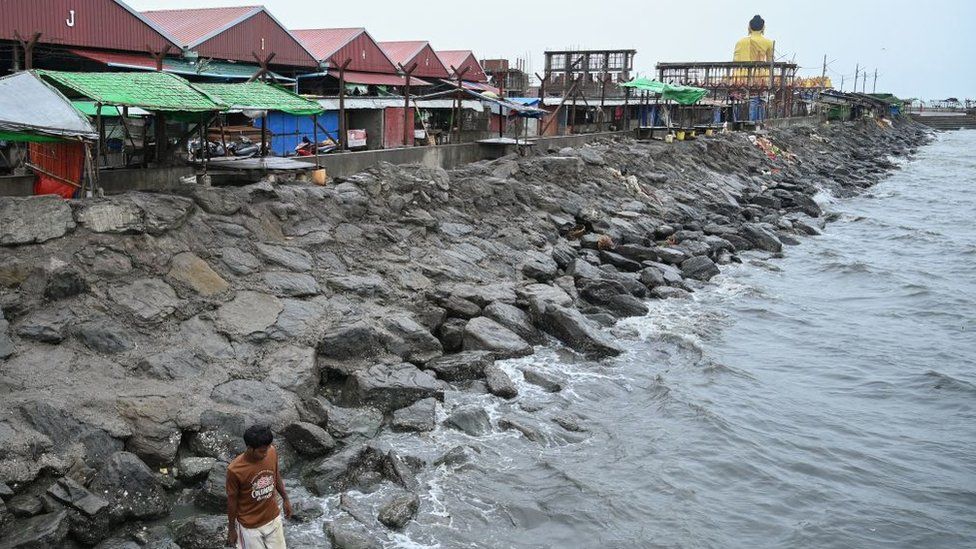 Getty Images
Getty ImagesThe bodies of 23 Rohingyas who were fleeing Myanmar’s Rakhine state have been recovered after their boat sank.
Thirty others are still missing, while eight people are reported to have survived the mishap.
The survivors said they were trying to reach Malaysia when their boat carrying more than 50 passengers foundered and was abandoned by its crew on Sunday.
Every year thousands of Rohingyas attempt the perilous sea journey to Malaysia or Indonesia.
They are escaping persecution in Myanmar and overcrowded refugee camps in Bangladesh. Those who died this week include 13 women 10 men, all Rohingya Muslims, a rescue team told BBC Burmese.
The Muslim Rohingyas are an ethnic minority in predominantly Buddhist Myanmar. Many of them fled to Bangladesh in 2017 to escape a campaign of genocide launched by the Burmese military. Those remaining in Myanmar too have been trying to flee since the military coup in 2021.
Survivors of the boat sinking this week recall being struck by a large wave near Rakhine’s capital, Sittwe.
They say the smugglers, who had been paid around $4,000 (£3,153) per person for the journey to Malaysia, then abandoned the boat. The bodies of the victims have been picked up by other boats, or washed up on the beach.
The long journey across the Andaman Sea in overcrowded fishing boats is always dangerous, but especially at this time of the year, at the peak of the monsoon storm season.
Most Rohingyas attempt to cross between the months of October and May.
They are willing to take the risk – and often sell their only assets, such as land, to fund the trip – because of the unrelentingly grim conditions in which they are forced to live, either as refugees in appallingly crowded camps over the border in Bangladesh, or subjected to discrimination and restrictions on their movement in Myanmar.
China driving Marcos deeper into American arms
MANILA – “I’m not aware of any such arrangement or agreement that the Philippines will remove from its own territory its ship,” Philippine President Ferdinand Marcos Jr said when asked about China’s recent request for the removal of the BRP Sierra Madre grounded vessel from the contested Second Thomas Shoal.
“And let me go further: If there does exist such an agreement, I rescind that agreement now,” Marcos added, the latest fusillade in the leader’s tough stand on China amid escalating tensions in the South China Sea.
The Filipino president was responding to claims by the Chinese Foreign Ministry on August 7 following yet another major incident in the maritime area that Manila had “promised several times” to tow the Sierra Madre away “but has yet to act.”
Over the weekend, Philippine authorities released footage showing China Coast Guard ships blocking and harassing Philippine resupply vessels approaching the Second Thomas Shoal, where a detachment of Philippine marines are stationed over the rusty, half-sunken ship.
China has denied blocking resupply of food and water supplies, but it has defended its latest action by accusing Manila of efforts to transfer construction materials to the area.

While China has engaged in massive reclamation activities in the disputed sea, it has at the same time opposed any similar efforts by rival claimant states. The Asian powerhouse has also opposed the Philippines’ recent efforts to expand military cooperation with the United States under the Enhanced Defense Cooperation Agreement (EDCA).
The recently enhanced agreement gives US troops rotational access to Philippine bases, including strategic facilities situated close to Taiwan. Speculation has grown in recent months that the US may eventually seek to preposition weapons pointed toward China on Philippine soil.
Confronting growing harassment by Chinese vessels in the South China Sea, top senators and political figures in the Philippines are egging on Marcos to adopt even tougher measures vis-a-vis Beijing. As a result, the notoriously conflict-averse Filipino leader is being forced to harden his line towards China.
Shifting mood
By all indications, the Marcos administration’s foreign policy pivot toward the United States has taken China by surprise. Just weeks after a high-profile state visit to Beijing, Marcos greenlighted an expanded EDCA with the US. Months later, he traveled to the White House and the Pentagon to upgrade bilateral defense ties further.
To be sure, the Filipino president did repeatedly seek to reassure China by vowing that EDCA sites would not be weaponized by the Pentagon. His top defense officials also downplayed the proximity of some of the EDCA sites to Taiwan’s southern shores, emphasizing that Philippine defensive capability development was the main focus of growing cooperation with the United States.
Public statements, however, indicate that China is unconvinced. In a direct challenge to Marcos’s mandate, former president Rodrigo Duterte accepted an invitation to visit top Chinese leaders including President Xi Jinping in Beijing, reportedly to mediate rising tensions.
In recent months, the popular former president has wasted no opportunities to criticize his successor’s pro-US foreign policy, most notably the enhanced EDCA, as unnecessarily provocative toward China and potentially devastating for Philippine sovereignty.
Aside from exerting pressure on Marcos via pro-Beijing figures in the Philippines, China has also upped the ante in the South China Sea. Ever since the Philippines cleared an expanded EDCA with the US, Chinese vessels have engaged in various forms of intimidation against Philippine counterparts.
Beijing’s tough tactics, including the Chinese Coast Guard’s recent use of water cannons against Philippine resupply ships destined for the Second Thomas Shoal, have galvanized Manila’s political elite.
“I’m begging you to stop bullying Filipinos,” exclaimed Philippine Senator Christopher “Bong” Go during a particularly spirited speech earlier this year.
“Just because we are a small country we will be oppressed? Don’t do that!” said Go, vice-chairman of the Senate Committee on National Defense. “Let’s maintain respect. We will fight for what is ours. What is ours is ours. That’s ours. So stop using violence or bullying.”
What makes Go’s comments particularly noteworthy is that the senator is the de facto right-hand man of former president Duterte.
Go, who is of Chinese-Filipino descent, repeatedly accompanied Duterte during trips to Beijing in order to elevate bilateral strategic ties. But now, even this top advocate of Philippine-China relations has begun adopting a more critical stance, at least in public.

Other key Duterte allies have adopted similar lines. Senator Francis Tolentino, former political affairs secretary under Duterte, has been a leading advocate of stronger defense ties with Western allies.
Earlier this year, he even called for a “new quadrilateral” security alliance with Australia, Japan and the US to counter China’s assertiveness in the South China Sea.
Following the latest incident in the disputed waters, other pro-administration stalwarts have also taken harder lines.
“China’s bullying only promotes discord and instability, which does not do well for regional peace and harmony,” said Senator Ramon Revilla Jr, another key Duterte ally. “We have long advocated for a coexistence built on respect and amity. And with this incident, we must put our foot down and draw the line where the safety and interest of our countrymen are endangered.”
Radical measures
Senators JV Ejercito and Joel Villanueva, who belong to the majority bloc in the 24-member Senate, have called on the Marcos administration to ramp up measures against China while enhancing the country’s defensive capabilities.
In fact, there seems to be growing support for opposition Senator Risa Hontiveros’s earlier call to take China to the United Nations over there South China Sea disputes, as well as pursue joint patrols with Southeast Asian claimant states in the contested waters.
Senate President Juan Miguel Zubiri cited China’s recent “atrocities” as a reason to consider more extreme measures beyond the hundreds of notes verbales filed by the Department of Foreign Affairs (DFA) to Beijing against China’s various actions in the disputed waters.
“Those acts done were completely illegal and therefore a complaint should be filed under the United Nations Convention on the Law of the Sea with the UN,” said Zubiri.
“Not just notes verbale. With due respect to the DFA, with the number of notes verbale – with the number of diplomatic protests – we can gift wrap the Chinese embassy in Metro Manila yet we are still ignored,” the Senate president added, underscoring the hardening stance among the Philippine political elite on the issue.
Top political figures have also called on the government to start refurbishing the Philippine position on the ground, most especially the grounded vessel in the Second Thomas Shoal.
Under the Duterte administration, the Philippines upgraded its facilities across the Spratly group of islands, most notably on Thitu Island, which hosts a relatively large Filipino community composed of both civilians and military personnel.
But refurbishing the Sierra Madre vessel in the disputed area risks provoking an even more aggressive response from Beijing. So far, Marcos seems determined to avoid direct clashes with China, but he will also have to contend with growing public pressure.
An authoritative survey released earlier this year showed that more than eight out of 10 Filipinos want the government to seek US assistance to better defend the Philippines’ position in the South China Sea. Meanwhile, a more recent survey by the New York-based Eurasia Group consultancy showed that 69.8% of respondents held negative views of China.

In the Philippines, public opinion is often king and could eventually force the president’s hands. If the status quo persists, Marcos will have no choice but to further enhance military cooperation with the US to better defend his country’s position in the South China Sea.
He may also seek the Pentagon’s assistance – even if indirectly through security guarantees in the event of potential clashes with China – to refurbish Philippine facilities in the Spratlys.
By resorting to intimidation tactics rather than providing meaningful concessions and incentives, Beijing may have inadvertently alienated a potential ally in one of the most strategically situated nations in the Indo-Pacific, with major implications for the trajectory of US-China rivalry in the region.
Follow Richard Javad Heydarian on Twitter at @Richeydarian
Modi wins no-trust vote over India ethnic violence
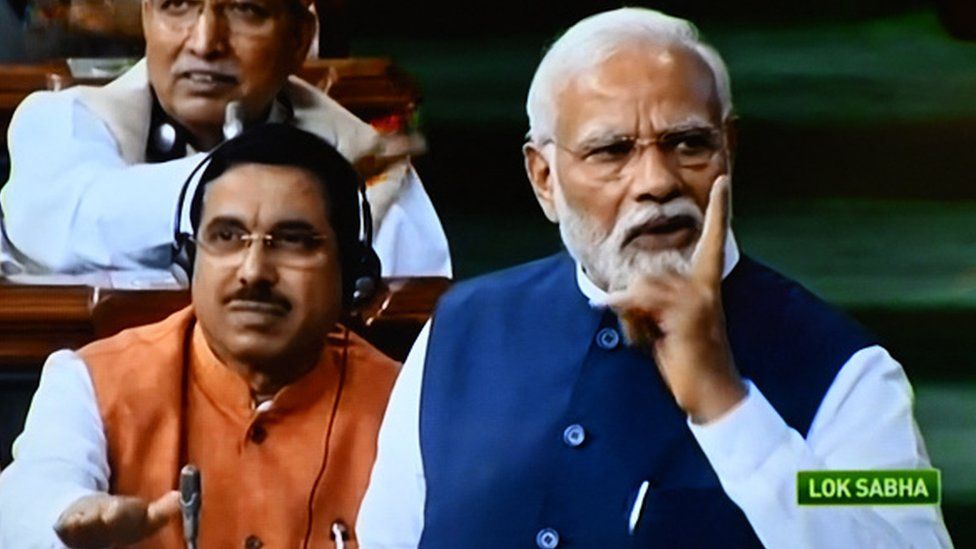 Getty Images
Getty ImagesIndia’s Prime Minister Narendra Modi has defeated a no-confidence vote in the parliament after a three-day debate.
His government was not expected to lose the vote as his Bharatiya Janata Party (BJP) and its allies have a majority.
Mr Modi criticised the vote as an attempt by opposition parties to “defame India”.
Opposition leaders say the vote was moved to force him to speak on the ethnic clashes in Manipur state.
More than 150 people have died and tens of thousands have been displaced in Manipur since May, when clashes broke out between the majority Meitei group and the tribal Kuki minority. Mr Modi publicly addressed the violence weeks later, after a video that showed two women being paraded naked by a mob sparked global outrage.
The parliament session, which began on 20 July, has been marked by protests from the opposition which demanded that Mr Modi address the house on the violence in the state.
On Thursday, before the no-trust vote, the Opposition walked out of the parliament after Mr Modi failed to mention Manipur over an hour into his speech.
Late into his two-hour speech, Mr Modi said the federal and the state government were working together to bring back peace in the troubled state.
“I also want to tell the people of Manipur that the country is with you, this house is with you. We will join hands and find a solution to this challenge together,” he said.
He also accused the Opposition of using Manipur “for political games”.
“They have no faith in the people of India, in the abilities of India,” Mr Modi said. “They have tried in vain to break the self-confidence of Indians with this no-confidence vote.”
This is the second time that Mr Modi’s government has defeated a no-confidence motion since it came to power in 2014.
In 2018, a lawmaker had moved a motion over the issue of granting a special category status to southern Andhra Pradesh state. It was defeated after a 12-hour debate.
BBC News India is now on YouTube. Click here to subscribe and watch our documentaries, explainers and features.

Read more India stories from the BBC:

Related Topics
‘Badge lady’ convicted again of not wearing mask, says prosecution is ‘vindictive’
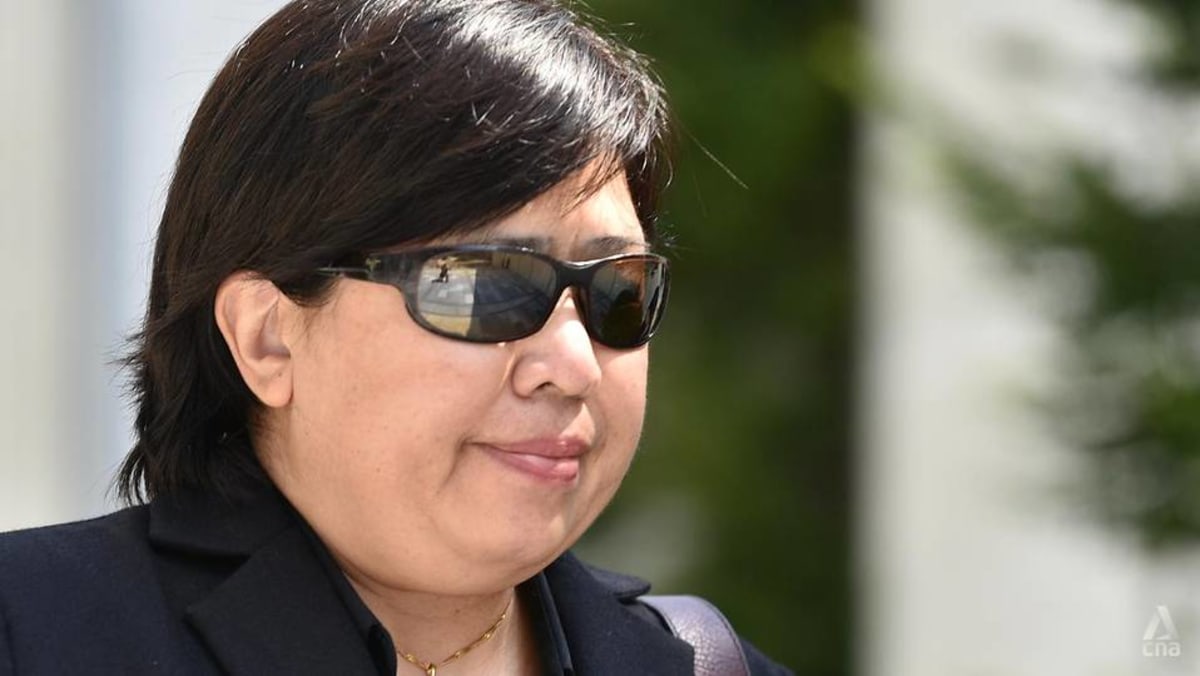
On the charge for failing to attend STB’s investigations, Phoon said she was a citizen who lived in Singapore for more than 50 years.
“Anybody who understands what is the STB would know that STB does not have enforcement power,” she claimed. “They do not have subpoena powers. They do not have the power to call any citizen to appear in front of their office for an interview unless I’m interviewing for a job.”
She said she had filed a police report because she felt the STB officers were impersonators and she had to defend herself and inform the police.
She also said she filed the police report because of “a string of harassment incidents” she encountered. The judge told her that she had not submitted on this point nor given any evidence of this at trial and so could not do so now.
Phoon continued: “In 2021, when I was brought to the court for the same offence, I said to the court that I had medical conditions which many people with the same medical conditions would be dead and buried, on a life support machine or sitting in a wheelchair.”
“Again, there is no evidence of this,” cut in District Judge Tan Jen Tse.
Phoon also claimed that the investigating officer had committed contempt of court by retaining her passport “for no reason”.
“Your honour, it is the defence’s case that these charges should be dismissed with costs, and the costs should include the number of days my passport had been retained, which affected my citizenry rights to travel,” she concluded.
In response, the prosecutor said the claim that impounding a passport was contempt of court was not true and had nothing to do with the trial.
On the fact that it was no longer illegal to go maskless today, the prosecutor said it was illegal at the time of Phoon’s offence.
On having to sit through 12 days of hearing, the prosecutor said: “(It’s) purely because of the accused person’s own actions. In fact, it’s because of her failure to attend STB investigations on three occasions that protracted investigations and led to the court hearing today.”
Judge Tan rejected Phoon’s submission that she should not have been charged at all, since it is no longer required to wear a mask in public.
“The key issue is whether the provisions were in force as at the date of the alleged offences, and not at the time the accused was charged or at present,” he said.
He said the videos tendered by the prosecution clearly showed that Phoon was not wearing a mask at the time of the offences.
In fact, for most of the time, her hands were in her pockets, he said.
He adjourned mitigation and sentencing to September.
For failing to wear a mask when required, Phoon could be jailed for up to a year, fined up to S$20,000 or both as a repeat offender. The penalties are the same for a repeat offence of not complying with an officer during investigations under the Infectious Diseases Act.
Pheu Thai asks govt to refrain from transferring officials
PUBLISHED : 11 Aug 2023 at 10:46

The caretaker government should maintain the traditional code of ethics and strictly comply with the constitution by not transferring any of the high-level officials, particularly permanent secretaries for various ministries, while a new government is in the process of taking over the country’s administration, Pheu Thai Party deputy leader Phumtham Wechayachai said in his statement issued on Friday.
He reminds the caretaker government under Gen Prayut Chan-o-cha that it is duty-bound to follow the constitution, which prohibits it from approving any project that could create a tie-over responsibility for the new government as well as from transferring or appointing high-level officials. Doing so may affect the new government’s efforts to implement its policies, he said.
It would not be reasonable to claim that they are near to mandatory retirements, as it is not yet the end of the fiscal year, he added.
Mr Phumtham said it is necessary for the new government to implement its policies which have been presented to the people, starting from the first day of it taking office. Government officials, he said, are important mechanisms to steer the policies into actual practice, especially the country’s economic problems involving all business groups that must be quickly dealt with.
The permanent secretaries for all ministries, in particular, are most important mechanisms for the new government’s administration, he said.
To all permanent secretaries, Mr Phumtham said: “In order for the new government to quickly achieve its objectives, it is necessary that you delay appointments of high-level officials during this time and wait for the new government to come with new policies.”
Pheu Thai is currently acting as the core for the formation of a new government, after the May 14 general election winner Move Forward Party’s nomination of Pita Limjaroenrat for the post of prime minister failed to get parliamentary endorsement.
LTA to trial microwave-based ‘touchless buttons’ at 4 pedestrian crossings

SINGAPORE: The Land Transport Authority (LTA) will progressively roll out new “touchless push buttons” at four pedestrian crossings, as part of a trial to assess to use of contactless sensors.
Instead of pushing a button to activate the green man, pedestrians at these crossings will only have to wave. These microwave-based sensors will then activate the green man.
The trial will take place over the next six months, said LTA in a Facebook post on Thursday (Aug 10).
The locations are: Serangoon Road near the Kallang Park Connector, Fernvale Lane near Fernvale Primary School, Bukit Batok Street 31 near Dazhong Primary School and Circuit Road near the hawker centre.
LTA’s social media post was accompanied by a 14-second video showing how the sensor works.
Chinaâs game of Ukrainian chess

Last weekend, Saudi Arabia hosted a two-day summit in Jeddah dedicated to ending the war in Ukraine. Nearly 40 countries attended, including the United States, India, and dozens across Europe. But it was the presence of one nation that raised expectations for a breakthrough – China.
Because China had rejected a similar meeting in Copenhagen in late June, many interpreted its participation this time as evidence Beijing was ready to play a more active role. But an examination of the context surrounding the Jeddah summit suggests a different motivation for China’s involvement. Simply put, peace wasn’t Beijing’s primary concern.
Since the beginning of the Ukraine war in February 2022, Beijing has avoided anything that would compromise its neutrality or force it explicitly to take a side. This principle of neutrality made it impossible for China to attend the June meeting, given that Denmark is a member of the North Atlantic Treaty Organization.
Also read: The reality of China’s influence in the Middle East
Although NATO isn’t directly at war with Russia, its military support to Ukraine gives the Kremlin ammunition to claim NATO involvement. For China, attending the Copenhagen meeting without Russian participation would have tarnished Beijing’s image of objectivity.
By comparison, Saudi Arabia, one of the leading middle powers in the Global South, was a more acceptable host from the Chinese perspective.
Saudi Arabia has voted in favor of several UN General Assembly resolutions condemning Russia and demanding an end to the war. But it also abstained from a 2022 vote to suspend Russia from the UN Human Rights Council, and the two countries have been on a more coordinated path recently over oil production and global crude-oil supply.
This more nuanced position has made the kingdom a more natural partner for Beijing.
But image concerns aside, what’s driving China’s involvement now?
Importance of China-Saudi ties
For starters, participating in the Jeddah summit was more about China’s desire to continue sweetening ties with Saudi Arabia than any intention to condemn or force Russia’s hand in Ukraine.
China and Saudi Arabia have an important bilateral relationship driven by politics, energy and trade. Thus Chinese leaders believe they can endear themselves to the kingdom by supporting Riyadh’s diplomatic efforts on Ukraine.
Even if that calculation is wrong, attending talks costs China nothing. A summit is only an agreement to discuss, not a pact to act. Even if a consensus among participating countries had been reached – it wasn’t – neither Saudi Arabia nor its guests could have imposed their will on Russia (which was excluded from the discussion).
In that sense, the Jeddah summit positions Saudi Arabia as a peace mediator but doesn’t bring fundamental damage to China’s bottom line.
For Beijing, any “neutral” efforts to pursue peace and stability must be honored. This month’s summit could be framed as one such effort given the diverse participation and views represented. Now that China has lent its support to the Saudi endeavor, it wouldn’t be surprising for Beijing to demand reciprocity from Riyadh for its own peace initiative down the road.
Second, China’s participation in peace talks was facilitated by a recent thaw in the US-China relationship. Chinese President Xi Jinping is expected to visit San Francisco in November, which would be one of his most important foreign-policy activities of the year. The two countries are trying to rebuild bilateral relations before expected turbulence in 2024, when presidential elections will be held in both Taiwan and the US.
Finally, Beijing has been a bit more cooperative with the West’s efforts to squeeze Russia over its conduct in Ukraine. Recent moves in this regard are subtle but clear. In July, Beijing imposed new export control measures on Chinese drones, parts and technologies, dual-use supplies that Russia had been receiving from China directly or via subsidiaries in Iran.
In a thinly veiled criticism of Russia, China also urged the resumption of grain exports from Ukraine after Moscow backed out of the Black Sea grain deal, which had allowed Ukraine to export wheat, barley, and other staples.
Most recently, in a rare public display of displeasure, the Chinese Embassy in Russia criticized local authorities for mistreating Chinese citizens.
The key question in all of this is whether China has fundamentally changed its position on the war. The answer, so far, is no. None of the actions China has taken in recent months have imposed critical damage on Russia’s war capability or induced meaningful changes to Russian behavior.
In fact, given the long-term nature of US-China competition, Beijing is unlikely to abandon Moscow as a strategic partner, even if Russia is weakened in Ukraine. For China, Ukraine – and even Saudi Arabia – is part of a grand political chess match that Beijing has no intention of losing.
This article was provided by Syndication Bureau, which holds copyright.
Yun Sun is director of the China program and co-director of the East Asia program at the Stimson Center in Washington, DC.
âWe wonât feel intimidatedâ: Chinese scientists see limited impact from US hi-tech investment ban
As Beijing directs more funding into science and technology to meet its goal of self-reliance, some see the latest restrictions as an opportunity. “China will continue to advance its technologies and is firmly supporting home-grown alternatives, so the withdrawal of US capital is a chance for us to step in,”Continue Reading
China property giant Country Garden warns of up to $7.6bn loss
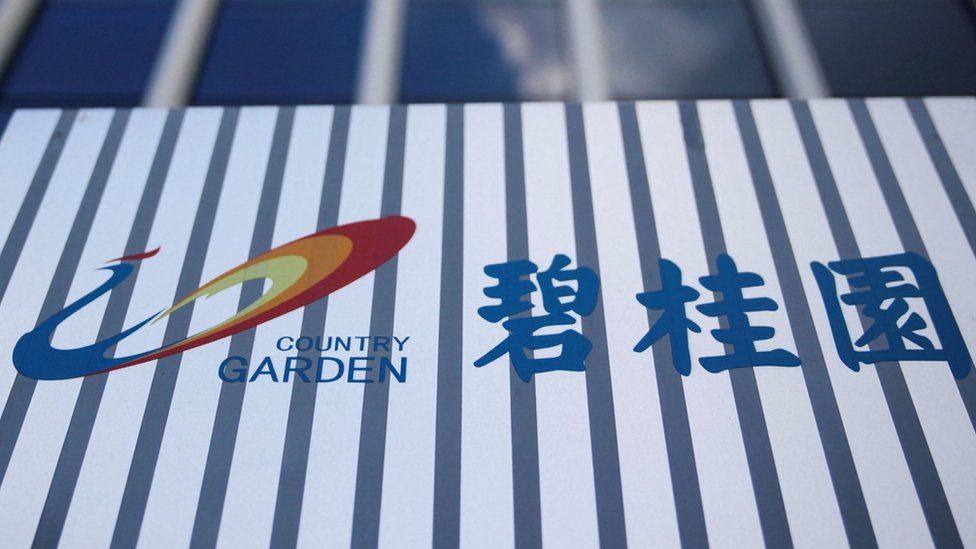 Reuters
ReutersCountry Garden, which is one of China’s biggest property developers, has warned that it could see a loss for the first six months of the year of up to $7.6bn (£6bn).
The announcement is the latest signal of the major issues faced by the world’s second largest economy.
This week official figures showed China had slipped into deflation for the first time in more than two years.
Exports have also fallen sharply, while youth unemployment is at a record high.
Country Garden Group “is expected to record a net loss ranging from approximately RMB45 billion [$6.24bn; £4.9bn] to RMB55 billion for the six months ended 30 June 2023,” the company said in an announcement to the Hong Kong Stock Exchange.
The expected loss compares to a $265m profit for the same time last year.
The firm also said it has set up a special task force, headed by its chairman Yang Huiyan, to find ways to turn the business around.
Earlier on Thursday, rating agency Moody’s downgraded the company’s rating, citing “heightened liquidity and refinancing risks”.
It came as China faced a number of economic challenges, which have raised questions about the pace of its post-pandemic recovery.
Earlier this week, official figures showed the country’s exports fell by a larger-than-expected 14.5% in July compared with a year earlier, while imports dropped 12.4%.
Youth unemployment, which is at a record high, is also being closely watched as a record 11.58 million university graduates are expected to enter the job market this year.
On Thursday, US President Joe Biden said China’s growing economic issues make it a “ticking time bomb.”
At a fundraising event in the western state of Utah, Mr Biden also said “China is in trouble” as he highlighted its high unemployment and aging workforce.
The country is also tackling ballooning local government debt and challenges in the housing market.
Last month, Evergrande, which was once China’s biggest real estate firm, revealed that in 2021 and 2022 it lost a combined $81.1bn.
The firm, which defaulted on its debts in late-2021, reported its long overdue earnings to investors.
Evergrande has been struggling with an estimated $300bn of debts.
The huge losses highlight how much the developer was rocked in recent years by the property market crisis in China.

